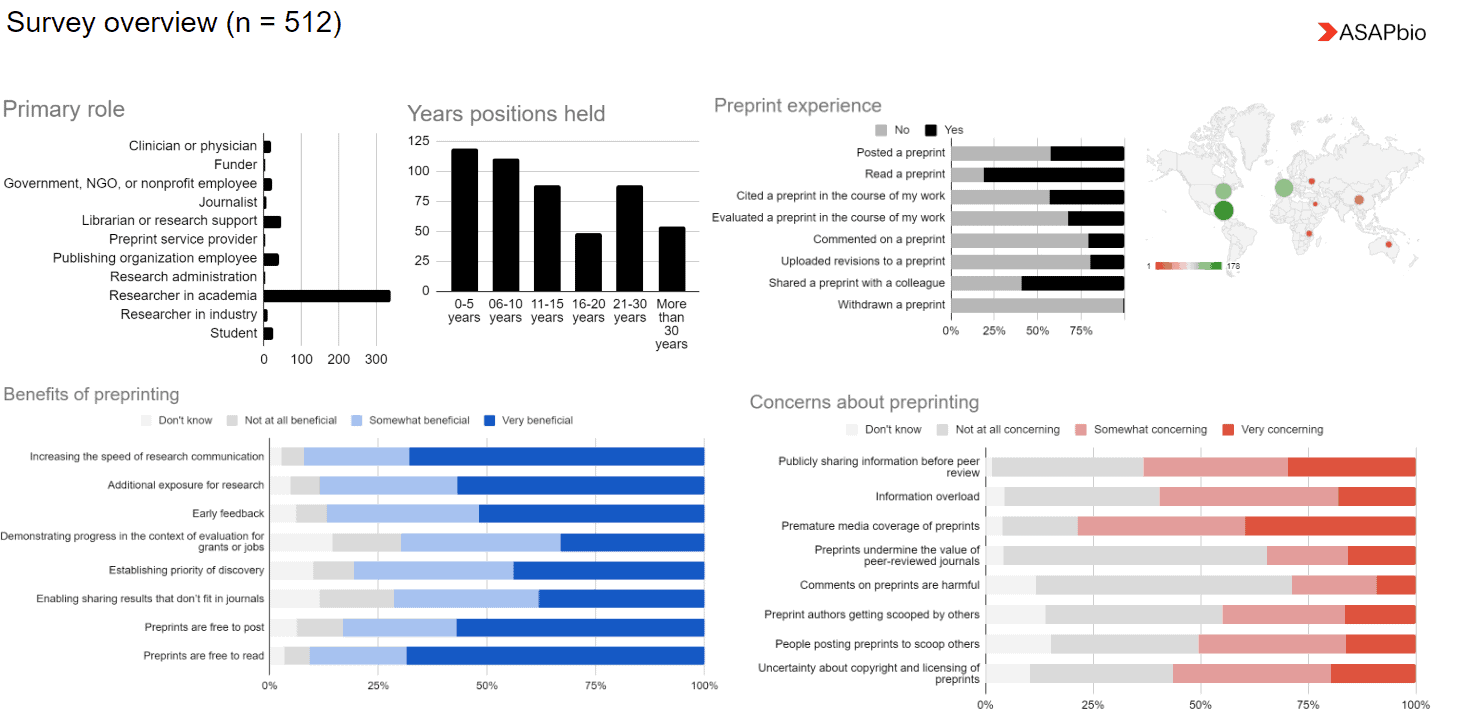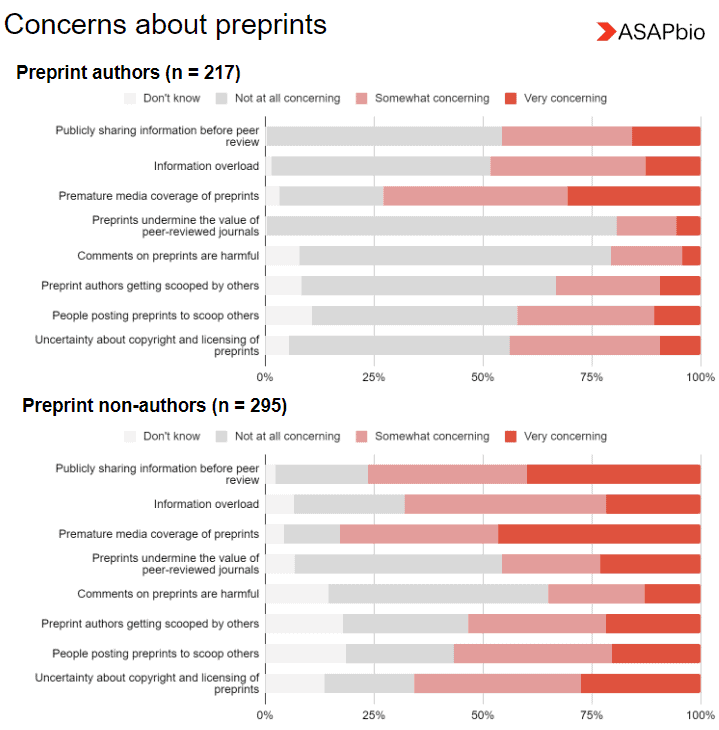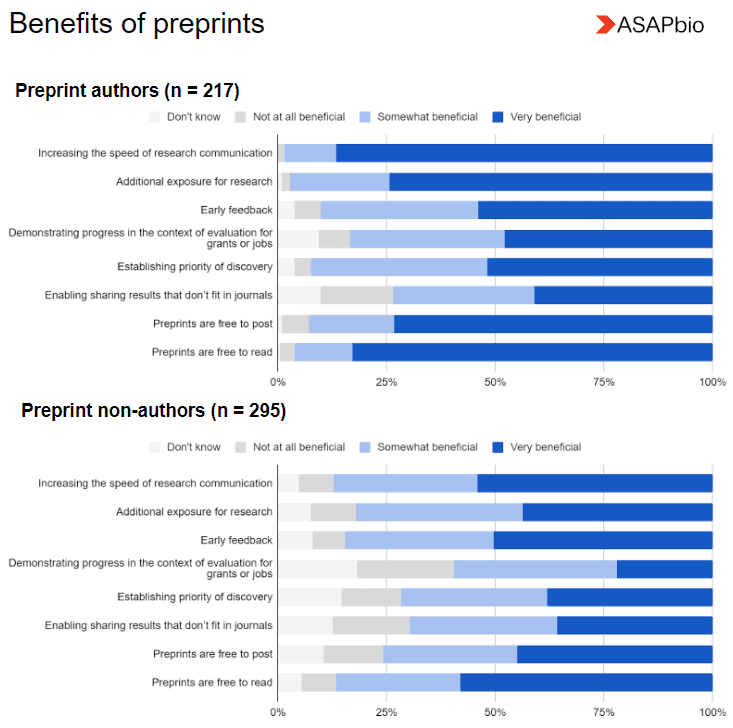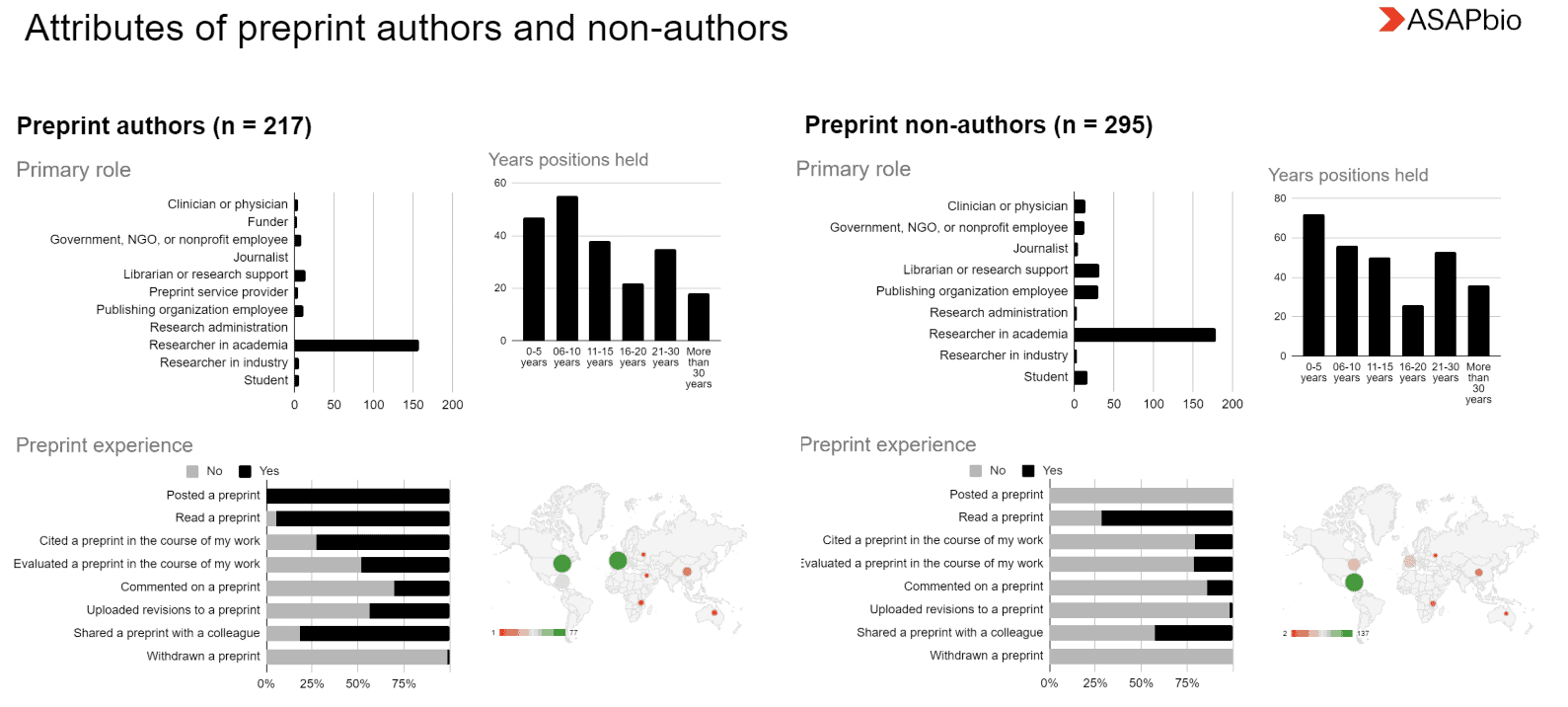With contributions from Kathryn Funk, Alice Meadows, Alex Mendonça, Oya Rieger, and Sowmya Swaminathan
After our #bioPreprints2020 meeting, a working group of attendees set out to understand how to best increase awareness about preprints among varied groups of stakeholders (such as librarians, journalists, publishers, funders, research administrators, students, clinicians, and more). To accomplish this goal, we first designed a survey to explore the perspectives of each group and seek feedback on the perceived benefits and concerns around preprints.
We put out an open call for participation in a web-based survey during the period June 16-July 16, 2020 — thanks to SciELO, SSRN, Wiley, Springer Nature, Cambridge University Press and others for spreading the word. A total of 546 people took the survey, but the results presented here have been filtered based on one of our predefined descriptions of their role (such as researcher in academia, funder, journalist, etc).
We’re still processing the results, but wanted to share some preliminary observations.
Researchers came out in force
The majority of survey respondents (337) identified as researchers in academia, which is unsurprising given that this group tends to be directly involved in authoring and reading preprints. We were delighted to see a good representation of respondents from Latin America and the Caribean (178), thanks in large part to distribution of the survey by Scientific Electronic Library Online (SciELO).

Top benefits and concerns about preprints
Topping the list of benefits of preprints: a close tie between increasing the speed of research communication and preprints being free to read. More than two thirds of respondents listed these as “very beneficial.” Preprints being free to post, providing additional exposure for research, and the opportunity for feedback were also popular, with more than half of respondents indicating these attributes are “very beneficial.”
Respondents were most concerned about premature media coverage of preprints, with almost 40% rating this as “very concerning.” Publicly sharing information before peer review was also “very concerning” to 30% of respondents. Uncertainty about copyright and licensing of preprints, information overload, and preprint authors scooping and being scooped were each viewed as “very concerning” by 15-20% of respondents.
Preprint authors see more benefits and fewer concerns
As you might expect, the perceived benefits and concerns surrounding preprints change when we slice the data by respondents who have posted a preprint and those who have not. Preprint authors are less likely to have concerns than those who have not published a preprint, although premature media coverage is the top concern for both groups.

Similarly, respondents who have posted a preprint generally viewed them as more beneficial, with ~25% jumps in the fraction of respondents citing speed increases, preprints being free to read and post, demonstrating productivity for grants and jobs, and additional exposure to research as “very beneficial.” Interestingly, similar proportions of respondents in both groups saw the benefits of early feedback and enabling sharing of results that don’t fit in journals.

The profile of preprinting vs-non-preprinting respondents varies depending on career stage, geographic distribution, and other types of experience with preprints, as shown below.

More to explore
This is just one way of segmenting the data, but there are many more. We invite you to help us explore the interactive dashboard we have created. If you find something interesting, please get in touch (jessica.polka@asapbio.org); we’d love for you to write a guest blog post or share your findings elsewhere. As we continue to analyze the data (including a wealth of free-text responses), we look forward to sharing additional findings with you.







11 Comments